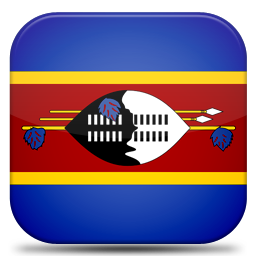Needs assessment mission
 A mission consisting of EISA's experts Cecile Bassomo and Naphtaly Sekamogeng was deployed to the Kingdom of Swaziland from 11 to 15 June 2013 to assess the capacity needs of civil society actors, with a particular focus on the Coordinating Assembly NGOs (CANGO) ESN-SA member organisation. On the basis of its consultative meetings with Swazi stakeholders from civil society, the media and the EMB, the NAM made the following findings further presented in the full report.
A mission consisting of EISA's experts Cecile Bassomo and Naphtaly Sekamogeng was deployed to the Kingdom of Swaziland from 11 to 15 June 2013 to assess the capacity needs of civil society actors, with a particular focus on the Coordinating Assembly NGOs (CANGO) ESN-SA member organisation. On the basis of its consultative meetings with Swazi stakeholders from civil society, the media and the EMB, the NAM made the following findings further presented in the full report.
Notwithstanding the abolition of the king's right to govern by decree his omnipotence in every aspect of Swazi politics and life has served to establish his supremacy over the 2005 constitution. Preparations for the parliamentary elections (September 2013) are carried against the backdrop of an election boycott campaign launched by pro-democracy groups that are opposed to the undemocratic Swazi political system and the ban of political parties in Swazi politics. The Swazi government reduced by half the allocated budget of E200 million (approximately $20,000.00) to the Elections and Boundaries Commission (EBC) for the 2013 elections.
Electoral violence is not a common phenomenon in Swaziland. However, violence seems to be a manifestation of resistance to the stagnation of the overall political environment and not the direct result of the conduct of national elections. Swaziland faced a series of security threats ahead of the 2008 parliamentary elections; harassment, repression, use of excessive force, arrests, arbitrary detentions, torture and prosecutions of pro-democracy activists characterised the government's fight against any movement of civil resistance between 2010 and 2012.
Participation in elections and voting patterns in Swaziland has been largely influenced by the people's dependence on traditional authorities for access to basic services and welfare. National socio-economic development has severely been impacted by the national HIV prevalence rate of 26% and one of the lowest life expectancy rates in the world. Organised labour movements and civic organisations have been at the forefront of the struggle for the democratisation of the political system in Swaziland. However, electoral violence has not been the focus of CSOs' interventions in Swaziland.
The country has not experienced occasions of election-related violence. The lack of an enabling political environment has not deterred civil society activism in the area of democracy promotion. Organised labour movements and civic organisations have for many years been at the forefront of the struggle for the democratisation of the political system in Swaziland.
CANGO was the Coordinating Secretariat for NGOs exclusively involved in the promotion of primary health care. CANGO's constitution was amended in 1987 to transform the organisation into an all-inclusive umbrella of NGOs in the field of development. Since 2001, the organisation has been playing an active role in the fight against poverty in Swaziland. Current programmes are geared towards building the capacity of civil society to engage in the policymaking process.
CANGO member organisations have not had many BRIDGE and LEAD training opportunities in previous electoral cycles. The benefits of proposed trainings would be enormous for Swazi CSOs in areas such as election observation, media and elections, gender and elections, and human rights. The timing of this year's parliamentary elections as well as the uncertainty about citizen observation of these upcoming elections reduces to some extent the likelihood that CSOs will utilise skills from BRIDGE trainings in election observation in this electoral cycle. Following Swaziland's elections (July 2013) the post-electoral phase of the current electoral cycle, CANGO and other relevant electoral stakeholders may benefit from conduct of BRIDGE trainings in media and the elections as well as gender and the elections.
TRAININGS
Please click on the title of the training for more information:
Research Activity
Please, click here to access the abstract of the research paper

